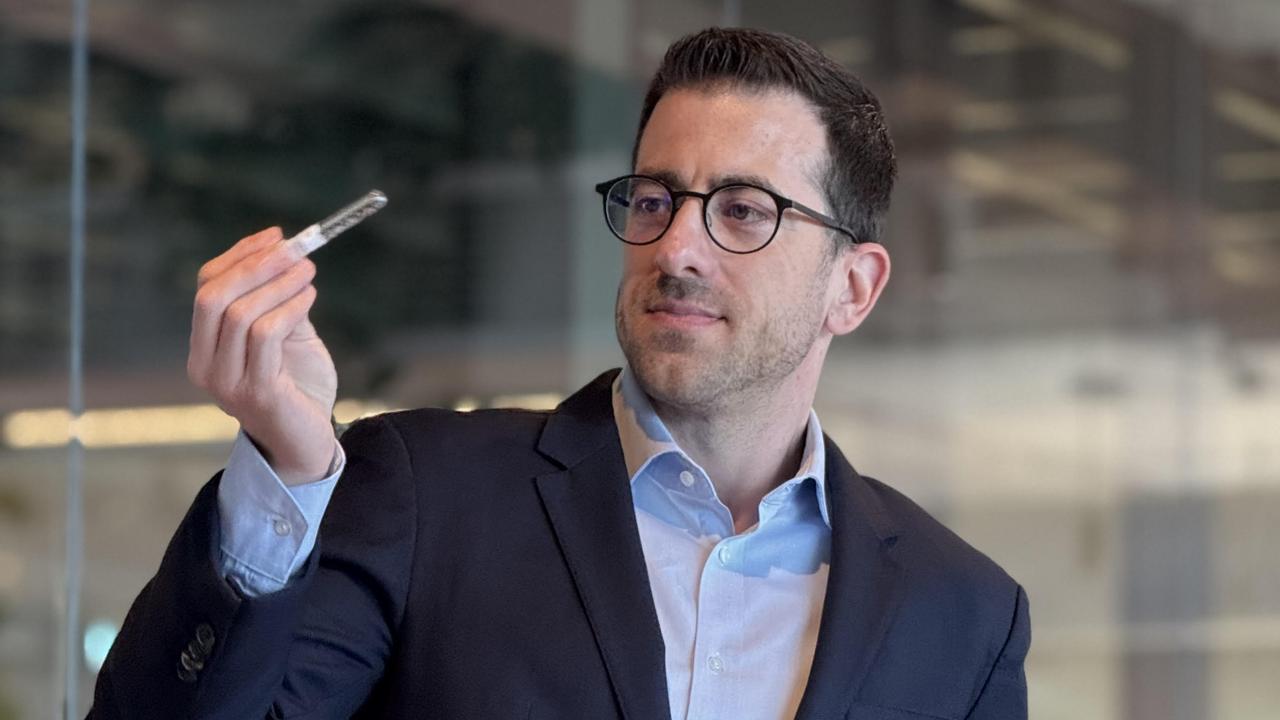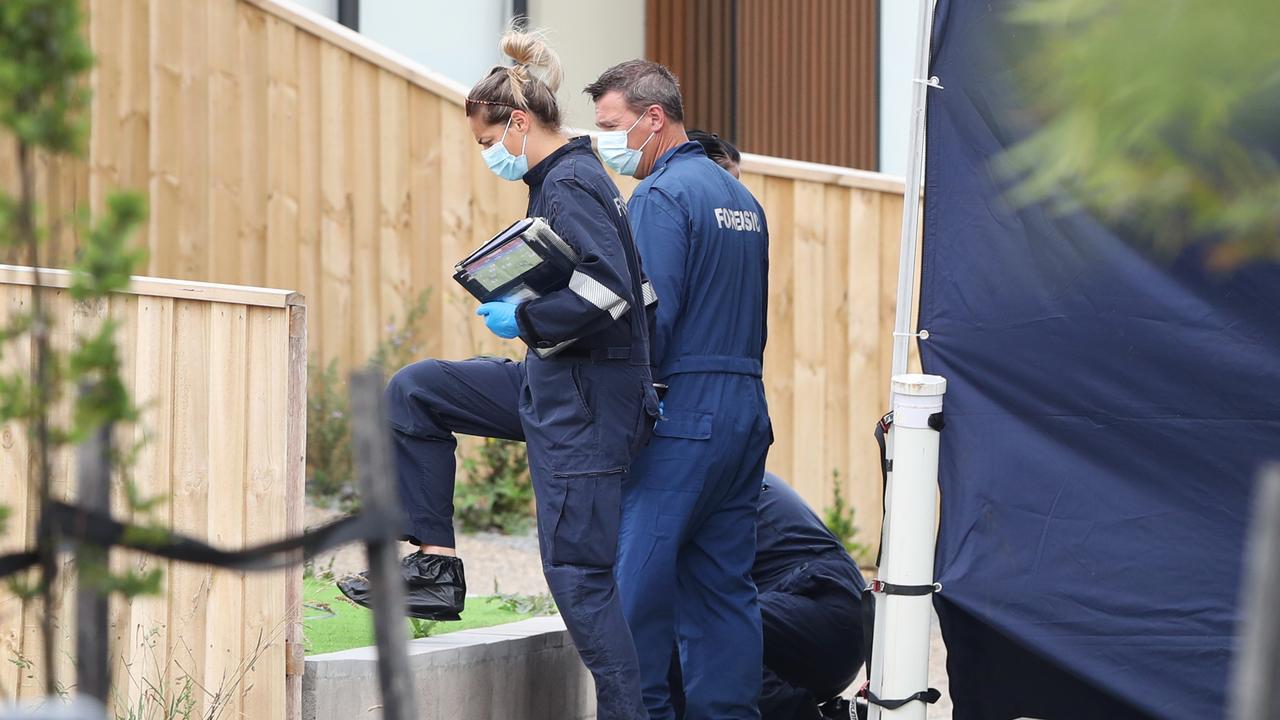Melbourne described as ‘a little bit special and magical’ but facing challenges post-lockdown
Experts say the city needs a “unified message” to boost its global reputation beyond the famous coffee culture.
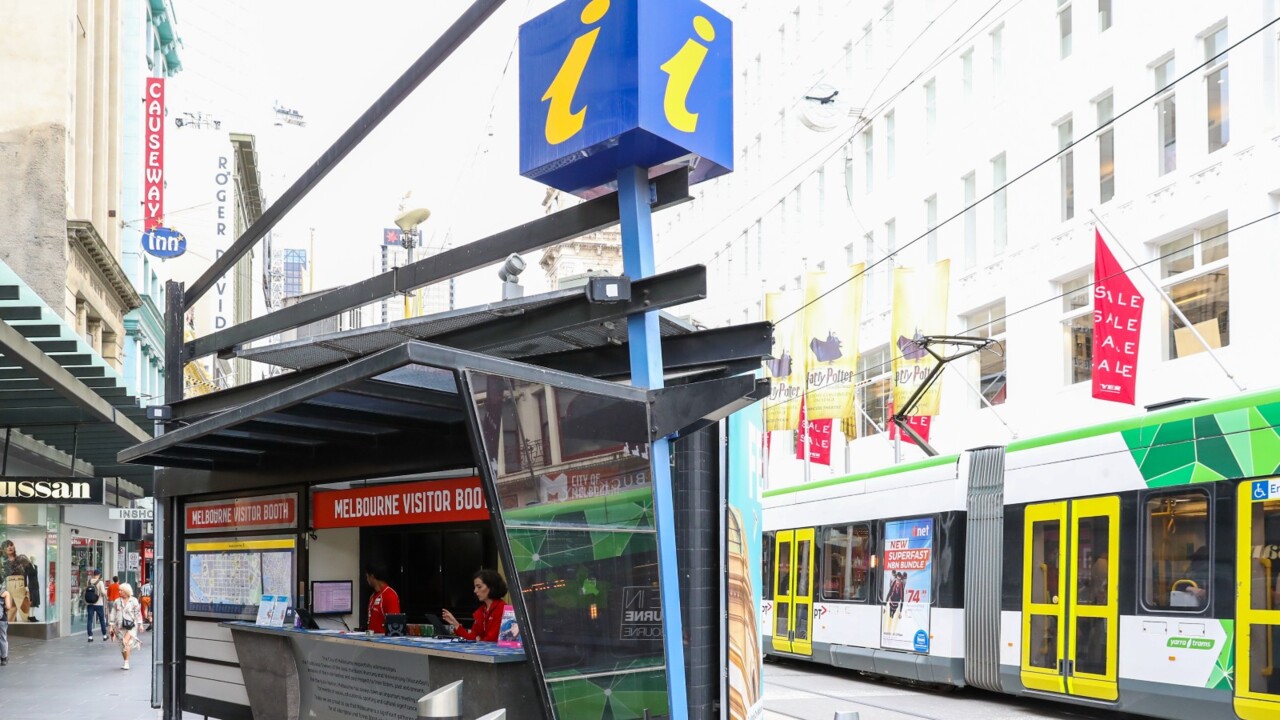
Victoria
Don't miss out on the headlines from Victoria. Followed categories will be added to My News.
Melbourne’s “brand” needs a reset and the outer suburbs require just as much attention as the city centre, a top branding expert says.
As a major new report outlines the challenges facing the city post-Covid, calls are being made for Melbourne to define its global image to ensure it stays relevant and dynamic.
Former Melbourne Business School marketing professor and brand expert Mark Ritson said Melbourne’s brand was not obvious or immediate, but “a little bit special and magical”.
“You cannot have 42 different things because what that ends up being is nothing,” he said.
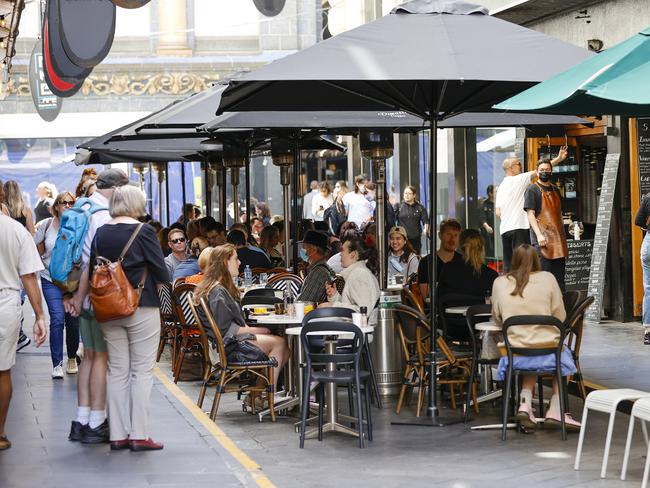
“The challenge is, do we push that link to university and high science angle? Do we push the European feel over the city? Do we push that secret, magical, more exclusive thing there?”
Mr Ritson said managing growth was a key part of maintaining Melbourne’s positive perception over the next few decades amid booming growth in the outer suburbs.
“How do we define a city when it’s approaching this gigantic size?” he said.
“When we talk about inclusiveness, we talk about people of different orientations and races, and that’s absolutely something that Melbourne is wonderful at, but I think we have to add the geographic disparity and make sure that is something that we balance out in the future.”
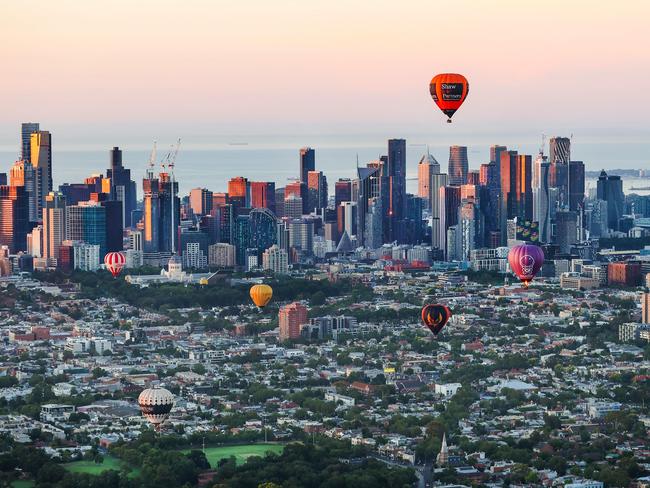
“Melbourne will only be as good an experience as one that you have an hour out of the city rather than two minutes away from Collins St.”
The Benchmarking Melbourne 2023 report released today said that developing an agreed vision for the city needed collaboration between governments, state departments, statutory agencies, businesses and the community.
Committee for Melbourne CEO Mark Melvin said Melburnians were understandably proud of their famous food and coffee culture, but there was much more the city could trumpet.
“We have world leading firsts like inventing the airplane black box, we were the richest city in the world in 1880, our State Library was the first to open in Australia, our medical research facilities at Peter Mac and other centres are globally recognised,” he said.
“Only if there is a unified message and action, will Melbourne’s full potential be realised, and residents and businesses can feel more engaged in what makes us one of the best cities in the world.”
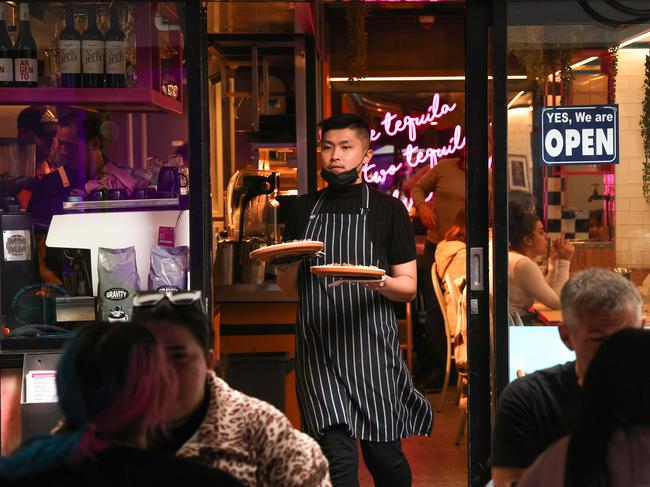
German tourist Benjamin Fayaz said he loved the city’s atmosphere, modern architecture, high-rise buildings and “sheer size”.
“A few months ago when I was in New Zealand, everybody was talking about Melbourne, especially young people – it was the place to go in Australia,” he said.
“I was surprised (by the cost of public transport) but I heard they’ve got a daily limit.”
Fellow German visitor Brit Sussan said she preferred Melbourne to Sydney.
“I love Melbourne because you’ve got everything at once. You can go in the mountains and you can go to the Great Ocean Road in the evening,” she said.
Sydney visitor Cassandra Goldie, said Melbourne had “a kind of kookiness”.
“It has a sense of fun and a sense of seriousness too. I mean, I love sun and beaches, but it’s not all about sun and beaches.”
‘Some of Melbourne’s magnetism may have waned’
Melbourne continues to retain much of its appeal for residents and visitors, but the city lost some of its magnetism in the wake of pandemic lockdowns, says a major study.
A global survey has revealed that Melbourne scored highly on measures such as inclusivity, wellbeing and the “experience” economy, but rated poorly on housing affordability and commuter travel time.
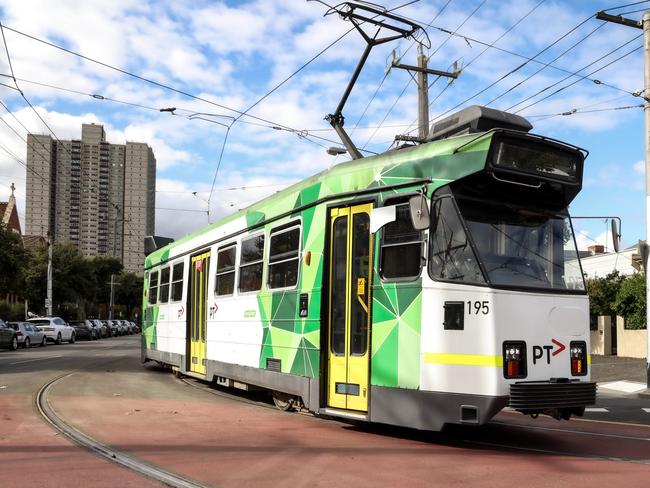
Released on Thursday, Benchmarking Melbourne 2023 compared the city against 19 peer metropolises and other global cities on measures ranging from business innovation to image and influence. Competing with cities including London, San Francisco, Singapore, Sydney and Brisbane, Melbourne was second best for inclusivity and wellbeing, up from seventh last year.
It rated fourth for the experience economy (down from third), eighth for image and influence (down from sixth), and ninth for skills and talent (down from seventh). Melbourne was the seventh least congested city among 17 peers, but had the joint second longest average commute time for public transport.
It ranked quite highly for city-centre walkability, but eighth out of nine cities when considering the whole city.
The report, which will be debated at a summit on Thursday by the Committee for Melbourne, said the city was the fifth most unaffordable English-speaking city for home-buying, compared to sixth most unaffordable in 2022. It ranked around the middle of 20 peer cities on measures such as skills and talent, global reach and resilience, and environmental outcomes.
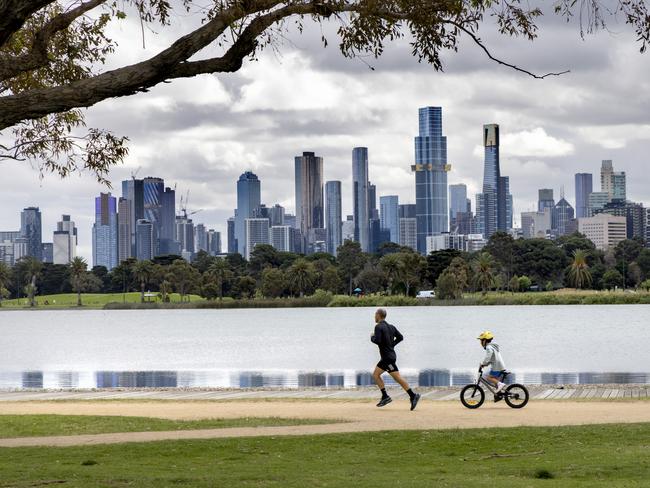
The report said in the wake of Covid, the global analysis showed while Melbourne retained “plenty of appeal, some of its magnetism may have waned”. Committee for Melbourne chief executive Mark Melvin said while there was much to celebrate about Melbourne’s strengths, questions arose over its long-term growth model.
“As Melbourne’s population is set to reach six million and become Australia’s largest city by 2031, we have an opportunity to ensure we want to be a city that delivers for all Melburnians, no matter your postcode,” he said.
“Over the last 20 years, Melbourne’s success has relied on consistent population growth, expanding suburbs and the gravitational pull of a successful CBD. This has resulted in an unequal distribution of green spaces, access to public transport and walkable restaurants and amenities.” Mr Melvin said it was not surprising there was a disparity between people’s experience of Melbourne.
“Interestingly, perceptions of Melbourne locally and globally are not in balance,” he said. The report showed on average, Melbourne placed 16th across all benchmarks based on reputation and perception, but only 25th on actual performance and delivery.
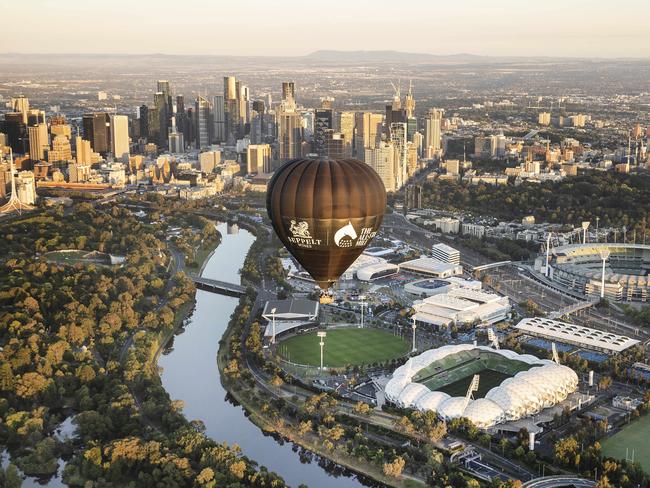
JLL managing director and Committee for Melbourne board member, Craig Shute, said the “performance gap” needed addressing to retain residents while converting visitors into permanents.
“We all know that Melbourne offers spectacular sporting and cultural events, but what people sometimes forget is that its biomedical precinct, start-ups and unicorn businesses are leaders in the world,” he said. “When we are talking about retaining our biggest and brightest minds, we are also talking about ensuring that companies want to establish their headquarters and grow their footprint here.
“Residents and business need to know there are opportunities to be leveraged, beyond being a cultural mecca.”
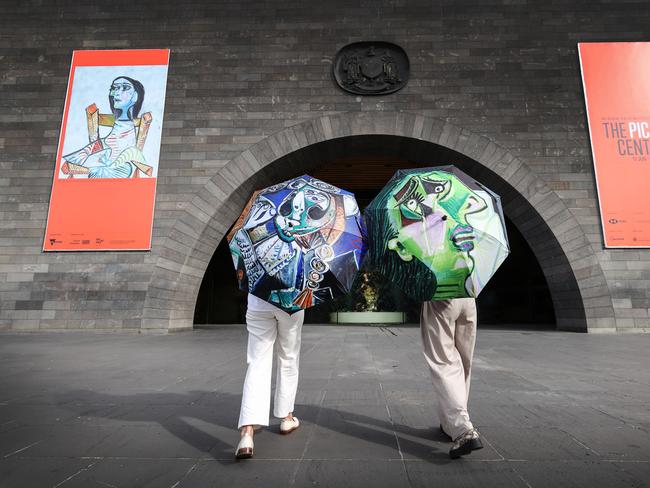
The report said Melbourne had a reputation of inventing concepts such as flat white coffee, and having “a global yet edgy feel”, but it needed to reinvest in its DNA to ensure it did not lose its spirit and dynamism. For it to re-emerge strongly, it had to:
• Continue developing the sharp edges of its innovation economy.
• Enrich and extend the urban experience.
• Ensure the whole city really is liveable, joined up, resilient and sustainable.
Commissioned by Committee for Melbourne and real estate outfit JLL Victoria, the report was done by British urban consultancy The Business of Cities.



